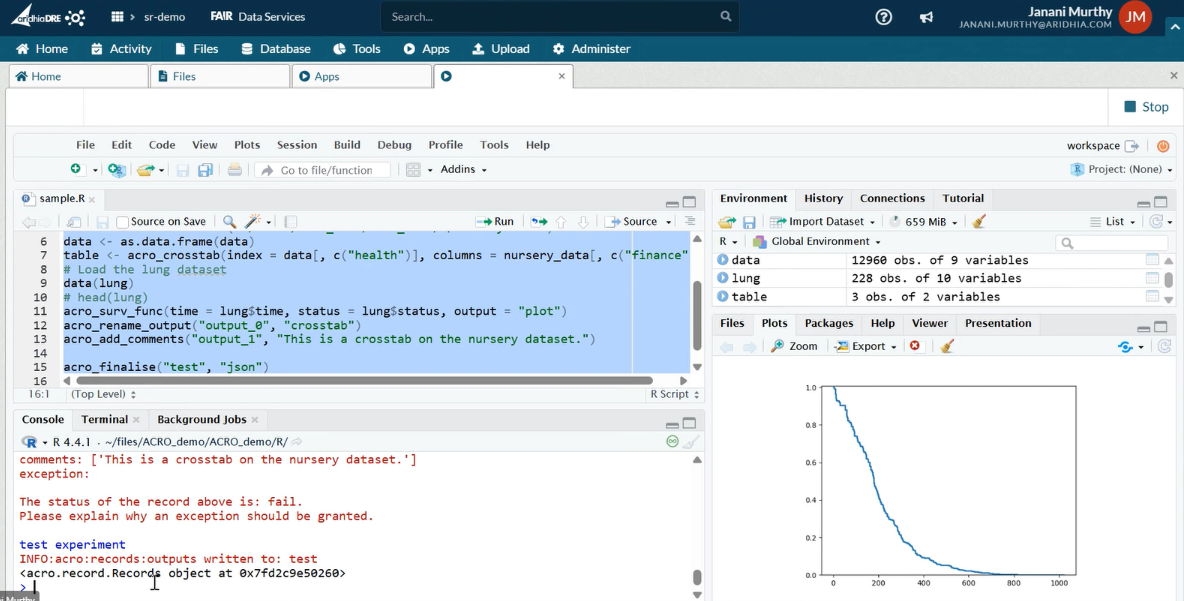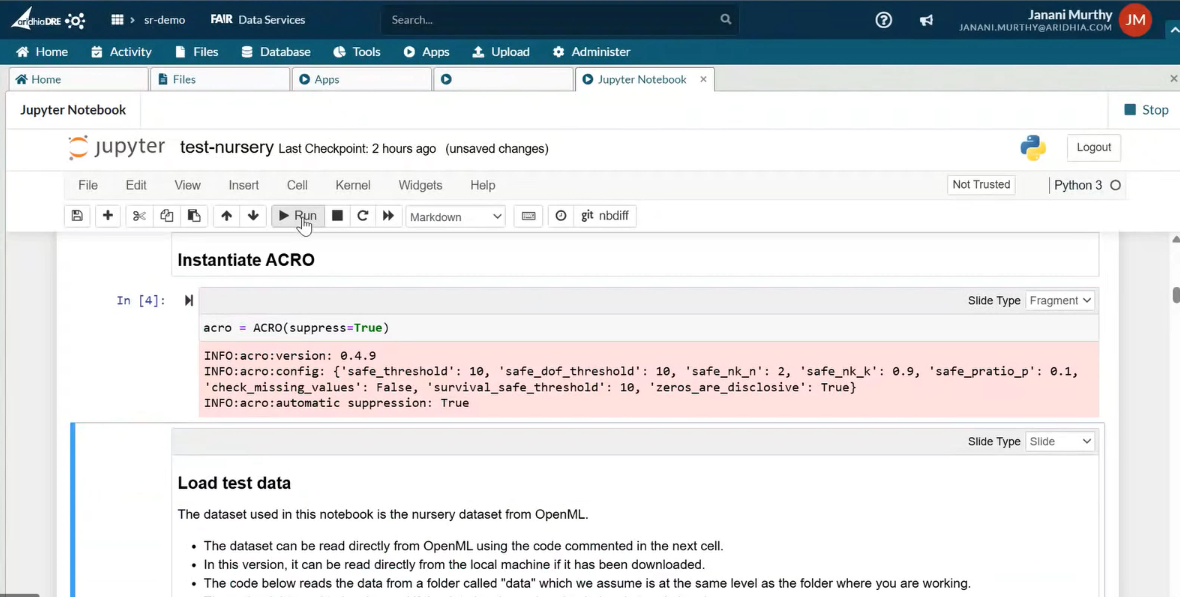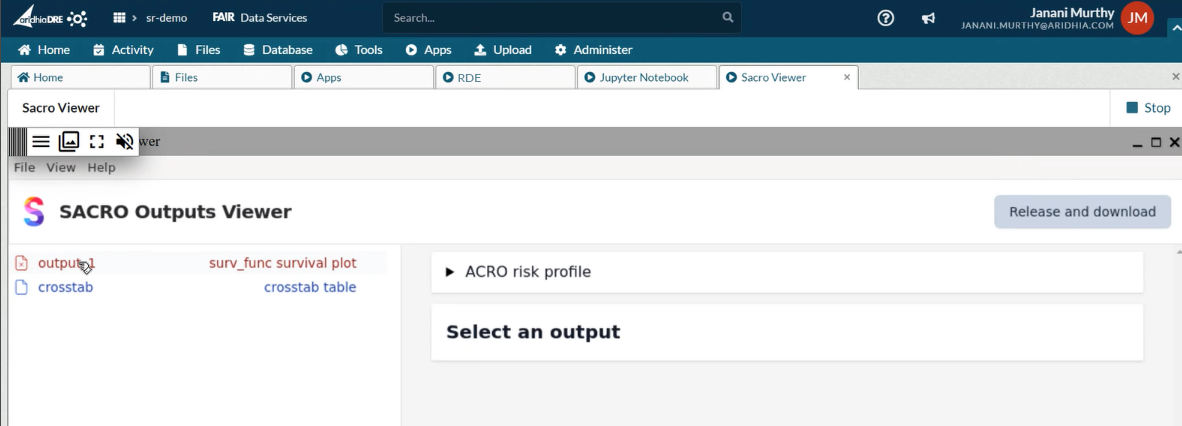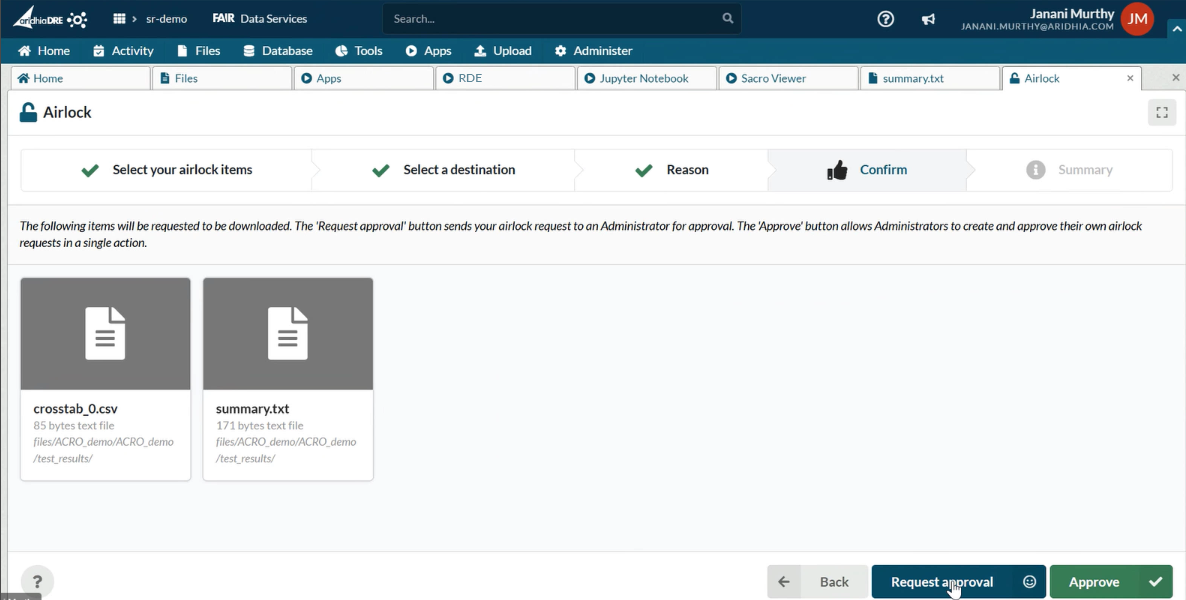Blogs & News
Running the ACRO Library and SACRO App Securely in the Aridhia DRE
At Aridhia, we’re passionate about enabling secure, collaborative research, so we’re excited to showcase how the ACRO library and SACRO app now run natively within our Digital Research Environment (DRE).
This work builds on SACRO (Semi-Automated Checking of Research Outputs), one of five DARE UK Phase 1 Driver Projects funded by UK Research and Innovation (UKRI). SACRO was developed to support the approval and safe export of research outputs from Trusted Research Environments (TREs). By integrating SACRO into the Aridhia platform, we’re enabling researchers to carry out analysis, validate outputs, and manage approvals all in one secure, governed environment.
What is the Aridhia DRE?
The Aridhia Digital Research Environment or DRE provides access to secure collaborative workspaces, also known as Secure Data Environments (SDE) or ‘Trusted Research Environments’ (TREs). It’s a secure, audited platform where collaborative data research can take place confidently and compliantly.
At the heart of the DRE are Workspaces which are secure, flexible environments for uploading data via Airlock and analysing it using a broad range of built-in tools. Whether you prefer Excel-style point-and-click interfaces or advanced coding environments, workspaces support a wide variety of users.
Demonstrating the Integration
Below is a short video where we explored how both the ACRO library and the SACRO app run within the Aridhia DRE. The SACRO process complements the DRE Outbound Airlock process which adds an additional level of audited control to the outbound data process.
1. ACRO in R Development Environment
We began by running an R script that uses the ACRO library to analyse the SACRO-provided nursery dataset. This script executes securely within R Development Environment, which is fully integrated into the workspace.

2. ACRO in Jupyter Notebooks
Next, we switched to Python and Jupyter Notebooks. Using the full script from the SACRO team, we repeated the analysis to show how ACRO functions just as seamlessly in a Python environment.

3. Reviewing Results in SACRO Viewer
The SACRO Viewer, a Linux desktop application provided by the SACRO team, has been converted into a web-based app running directly inside the workspace. Here, users can:
- Load output files
- View graphs and risk profiles
- Approve or reject outputs
- Download summaries and review results
Approved outputs and review summaries are zipped and stored securely in the workspace file system.

4. Secure Airlock Export
If researchers need to export data, they must use the Airlock process. This involves:
- Selecting files for export
- Providing a justification
- Submitting for approval by authorised personnel
Role-based access control ensures only designated approvers can allow data to leave the secure environment, with audit trails and email notifications built in.

Our goal is to not only provide a world-leading DRE but also support the UK’s growing ecosystem of federated, standards-based research environments.
For further information on how our DRE aligns to the SATRE framework see our series of SATRE blogs starting here
For further information on Federation in our DRE see our PHEMs blog How the Aridhia DRE is Enabling Federated Analysis in the PHEMS Consortium.
July 29, 2025
Alicia Gibson
Alicia Gibson joined Aridhia in 2018 and serves as the Chief Project Officer. With over 25 years of experience Alicia is a seasoned leader in project and operational management. With a wealth of experience in both internal and customer-facing projects she excels in aligning projects with the company’s vision. Alicia also leads the Customer Data Engineering team ensuring alignment with customer’s data engineering and data science needs and expectations. Prior to joining Aridhia Alicia worked at multiple Fortune 500 companies mainly in the technology sector and also joined an early-stage software startup. Alicia is a certified Project Manager and holds an MBA.
